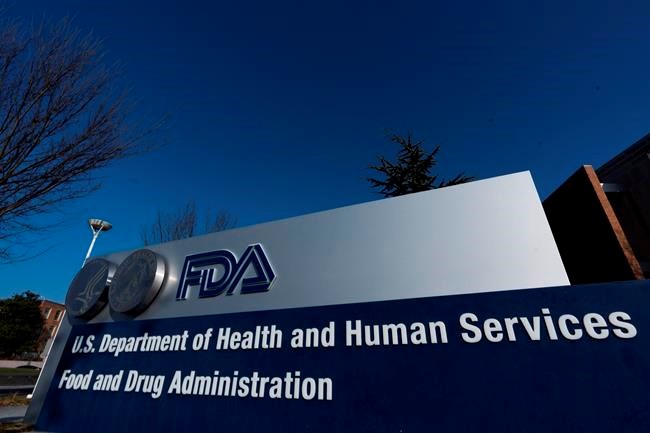OTTAWA — A major shift in U.S. policy about buying medication from Canada has caused fears north of the border about a potential supply crunch.
Those fears are unlikely to be realized any time soon, if at all, given Health Canada's existing export rules designed to prevent drug shortages, experts said in response to the news Friday.
The U.S. Food and Drug Administration agreed to allow Florida to import millions of dollars' worth of pharmaceuticals from Canadian wholesalers as a way to avoid the high cost of drugs in that country.
The decision prompted immediate concerns within Canada's pharmacy sector about the impact on supplies here.
The population of Florida is more than half the number of people who live in all of Canada. And beyond Florida, other American states are eyeing similar requests to the FDA to address the cost of drugs.
"To look to Canada as their pharmacy is just not practical. We can't do it, it's not possible," said Joelle Walker, vice-president of public affairs for the Canadian Pharmacists Association.
An association of Canadian pharmaceutical companies called Innovative Medicines Canada also expressed serious concerns about what would happen if the U.S. starting buying up Canadian medicines.
"Canada simply can’t supply drugs to Florida, or any other U.S. states, without significantly increasing the risk and severity of drug shortages nationwide," said David Renwick, the association's interim president.
"The U.S. market is nearly 10 times bigger than Canada’s, and allowing drugs that were intended for Canadians to be exported to the U.S. would harm Canadian patients and disrupt our health-care system."
Over the last several years Canada has run short on a range of drugs, from children's fever medication, to certain cancer drugs and, more recently, the popular weight-loss and diabetes management drug Ozempic.
Florida's proposal includes medications for asthma, chronic obstructive pulmonary disease, diabetes, HIV and AIDS and mental illness.
But the threat is not immediate, Walker said, and people should not rush to refill their prescriptions.
Florida still has more work to do to prove imports would actually save Americans money without sacrificing public safety, as well as test the drugs to make sure they’re authentic and relabel them so that they comply with U.S. standards.
"That in itself could actually be quite cost prohibitive and we hope will be a disincentive for Florida from proceeding," Walker said.
A former Canadian trade official in Washington doubts Florida will ever be able to bring in large volumes of medicine from Canada, given existing rules designed to prevent drug shortages.
"I think there's next to no chance that you're going to see bulk exports of Canadian pharmaceuticals to the U.S.," Eric Miller, a fellow with the Canadian Global Affairs Institute and the U.S.-based Wilson Center, said in an interview Friday.
"It's something that will not materialize because the pharmaceutical industry will not sell more medication to Canada than the Canadian market demands and the Canadian government will not let large quantities of Canadian pharmaceutical products destined for the Canadian market to be redirected or reshipped to the United States."
If a manufacturer wants to export drugs to the U.S., it would need Health Canada's approval, which the federal regulator would presumably deny if it feared a shortage.
Health Canada sent a bulletin on Friday that suggests it intends to hold that line.
The message reminded pharmaceutical manufacturers and distributors, as well as pharmacists and others in the sector about existing safeguards against shortages.
Canadian regulationsin place since 2021 ban the distribution of certain domestically produced pharmaceuticals outside the country if there are "reasonable grounds to believe that doing so could cause or worsen a drug shortage," the bulletin said.
"Drugs intended for the Canadian market can continue to be sold for consumption outside of Canada if the sale will not cause or exacerbate a drug shortage in Canada."
The department won't hesitate to address non-compliance, Health Canada spokesperson André Gagnon said in a statement Friday.
Rule breaking could be met with a public advisory or more serious sanctions, including revoking or suspending licences, the statement said.
In a statement, Health Minister Mark Holland assured Canadians they will continue to have access to the medications they need.
"Canadians can be confident that our government will continue to take all necessary measures to protect the drug supply in Canada," Holland said in the statement Friday.
Given Canada's ongoing struggles to keep its stores up medicine stocked, the NDP's health critic said Canada should not allow the export of drugs unless domestic supply is stable.
The U.S. pays by far the highest price for patented medicines among members of the Organization for Economic Co-operation and Development, with essentially no government limits on what companies can charge. While Canada pays far less by comparison, its prices still ranked third highest as of 2021.
Americans have long been able to fill prescriptions from Canadian pharmacies, but the newly announced policy change affects mass imports.
The FDA's decision follows years of successful lobbying against the idea by the pharmaceutical industry, which said imports would expose U.S. patients to risks of counterfeit or adulterated drugs. The FDA also previously warned of the difficulties of assuring the safety of drugs originating from outside the U.S.
The politics surrounding the issue have shifted in recent years, with both Democrats and Republicans doubling down on the import approach.
The medications would be only for certain people, including foster children, inmates, certain geriatric patients and — eventually — Medicaid recipients.
This report by The Canadian Press was first published Jan. 5, 2024.
— With files from The Associated Press
Laura Osman, The Canadian Press



